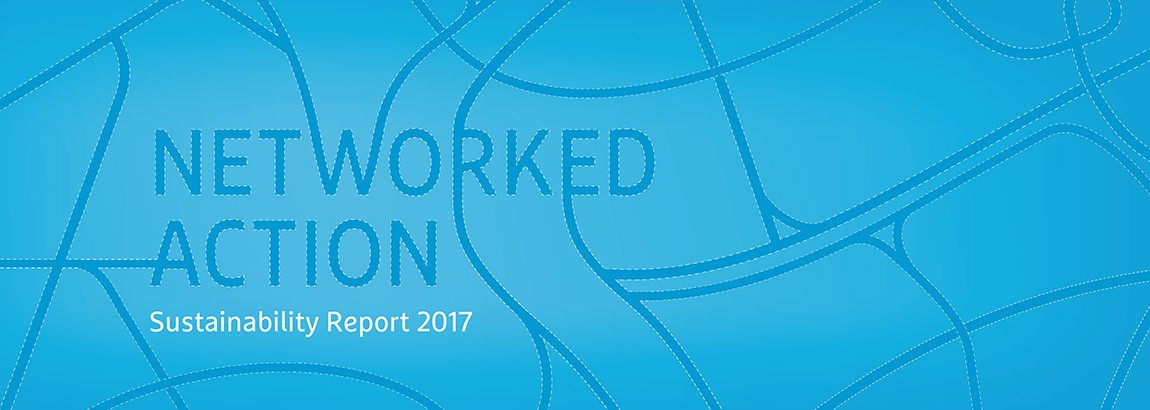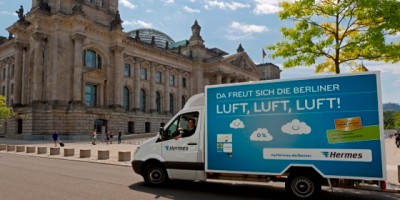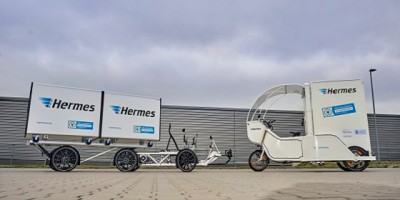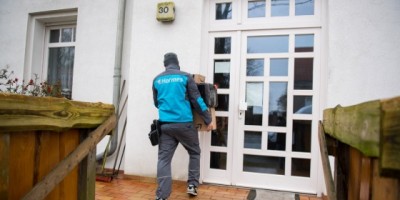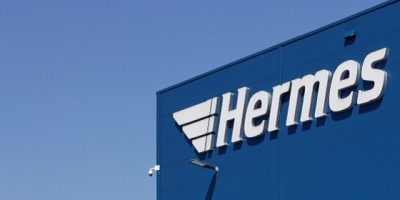Innovative logistics concepts
Innovative delivery concepts allow for greater flexibility
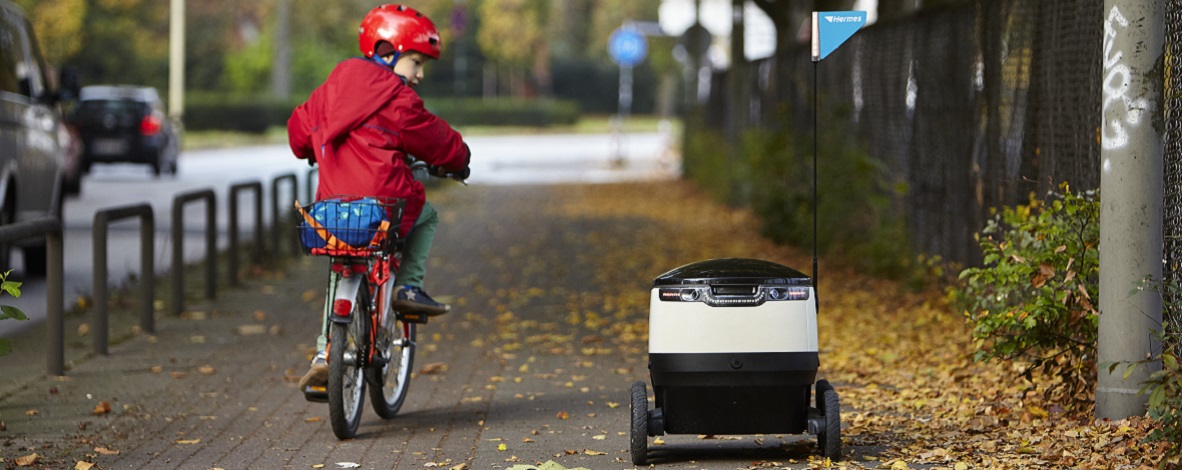
We are actively shaping the future of urban parcel logistics. This goes beyond the use of low-emission transport technologies. New ideas aim to increase the quality of service for customers. It is not only about drive technology, but also about topics that involve increasing digitisation such as route and deployment planning, new services, intelligent loading space solutions, innovative mobility solutions and networked services for data processing.
In a sense, the aim is to generate a new ecosystem for inner-city electrical logistics transport. This is a very complex task. On the one hand, our innovative concepts are intended to increase the quality of service to our customers. On the other hand, the reduction of emissions and noise also improves the quality of life of people - especially in the cities.
Innovative delivery concepts
Across Germany, Hermes is testing alternative delivery concepts, primarily with inner-city deliveries. The aim is to keep the routing of innovative low-emission vehicles as short as possible through targeted route and deployment planning as well as intelligent loading space solutions, making optimum use of their limited range while still being flexible in meeting customer requirements.
Hermes Germany is introducing a new, fully digital route planning for parcel delivery in Germany and is thus providing for an even more precise and efficient delivery process. This enables customers to benefit, for example, by offering shorter delivery bands. For couriers, the risk of delays is reduced because intelligent route and traffic planning adapts dynamically to changes that might arise in the course of the journey. Initial tests of the system had already taken place in 2016. A second major pilot test at the end of 2017 with around 1,000 machines at several courier bases was a success. The project partner is the start-up company Graphmasters from Hanover.
On top of this, the following partnerships and projects are part of our future programme:
Strategic partnership with Mercedes-Benz vans
Signing an agreement on a strategic partnership with Mercedes-Benz vans was an important milestone on Hermes' path towards achieving zero emissions in Germany's 80 largest cities by 2025. Hermes is looking to build up its use of Mercedes-Benz electro-vans in its parcel deliveries to 1,500. The project started with a pilot phase in Stuttgart and Hamburg at the end of 2017. By the end of 2018, around 50 electric vehicles - some of them pre-production vehicles - will be tested in real operation.
Among other things, new operational concepts are to be developed and evaluated for the practical integration of battery-powered electric transporters into existing operating processes. The establishment of an operational charging infrastructure at Hermes locations is crucial in this. Read more.
Delivery by cargo bikes
Besides zero-emission deliveries, cargo bikes and e-scooters also help us reach customers' homes in areas that are subject to traffic restrictions for conventional vehicles.
Hermes as already tested deliveries using cargo bikes in Hamburg and e-scooters in Göttingen. Since June 2018, a larger programme with several cargo bikes is being trialled in Berlin's Prenzlauer Berg district with parcel deliveries being trialled with the help of a micro-depot. Read more.
Deliveries by robot
Autonomous delivery robots could represent an environmentally-friendly market niche in conurbations in the future, especially when time-band delivery is critical. This makes innovative service offerings such as same-day, Food Delivery or evening deliveries possible outside normal service hours.
Robots from the European technology start-up Starship Technologies delivered test packages for Hermes in Hamburg from August 2016 to March 2017. As an exclusive logistics partner, Hermes tested the company at ParcelShops in the Hamburg districts of Ottensen, Volksdorf and Grindel. A total of three Starship robots delivered regular parcels to selected test customers.
In April 2017, a test was also launched in London, where Hermes robots were used for testing the collection of returns and parcels. Read more.
